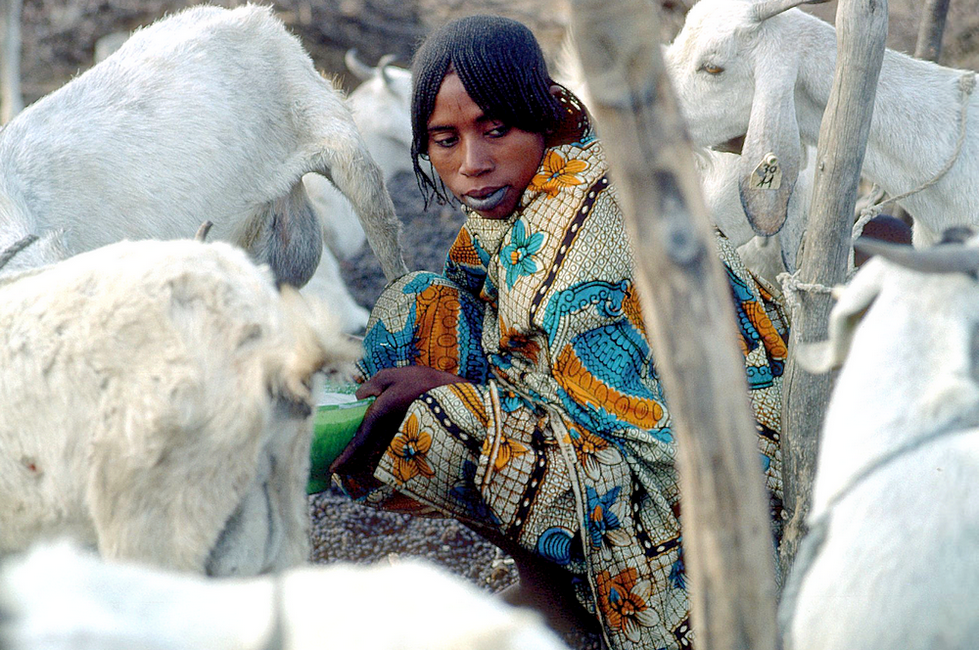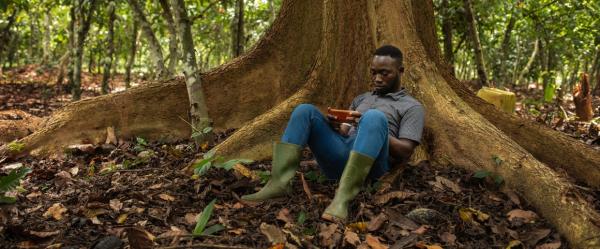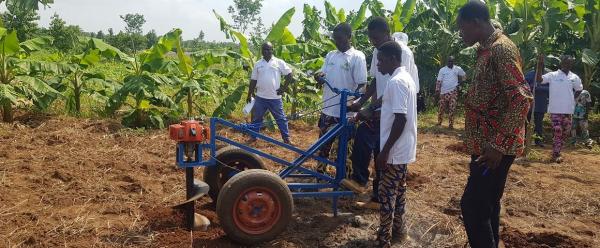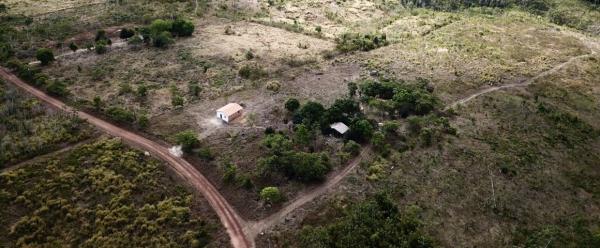Call to action 25 November 2025
- Home
- CIRAD news
- News
- Milk lever for development Sahel
Milk, a powerful lever for development in the Sahel

CIRAD has been working on milk in Africa for many years, particularly in the Sahel and in the savannahs, where it is vital for farming communities. The African market has grown substantially in recent years, due to population growth. Dairy multinationals are showing increasing interest, and several large European groups have set up in the region, but they are not truly involved in developing local dairy production, since they primarily use imported powdered milk as their raw material. How is this affecting local supply chains? Is it a long-term threat to the hundreds of thousands of livestock farming families and milk collectors in West Africa? CIRAD's Guillaume Duteurtre and Christian Corniaux, respectively an agro-economist and a zootechnician, shed light on these issues in a note published with the NGO Oxfam.
Renewed interest in local milk
The authors highlight the growing interest in local milk collection. Although the trend is still modest, there is a degree of political will, as shown by the regional "local milk" offensive to be launched shortly by the Economic Community of West African States (ECOWAS). CIRAD led the feasibility study for this initiative. At the same time, since June 2018, an NGO coalition has been running an advocacy campaign called Mon lait est local, centring on eight West African countries, which gave rise to the CIRAD-Oxfam note. For the private sector, investment in local milk collection is generally prompted by firms' obligation to demonstrate social responsibility, global powdered milk price volatility, and growth in demand for quality products.
For an alliance between industrialists and dairy farmers
There is substantial room for development within the supply chain: as things stand, just 2% of what pastoral and agropastoral farms produce is processed by commercial dairies. This is because farms are isolated, production is seasonal and limited, and collection systems are inefficient. As Christian Corniaux puts it, "This is where the large European dairy groups operating in West Africa come in. With appropriate incentive and regulatory policies, industrialists have a lot to gain by building a new alliance with dairy farmers."
Africa-Milk: boosting yields and collection
CIRAD has several projects studying local dairy supply chains. One of these is Africa-Milk, a project launched in late 2018 as a result of the Leap-AGRI initiative. "In response to powdered milk imports and environmental degradation, the project set out to secure supplies to dairies in two ways: ecological intensification of milk production, and co-design of efficient, inclusive collection systems", says Éric Vall, a zootechnician with CIRAD who is coordinating the project. To this end, the project will be launching local dairy innovation platforms associating producers, collectors, dairies and researchers. This will enable the various stakeholders to choose the technical and institutional innovations that best fit their situation and expectations. There are already similar platforms elsewhere, which have fostered the emergence of innovations such as contracts between dairies and collection centres.
Four countries, nine dairies, five impact pathways
Africa-Milk is led by CIRAD, with five partners*. Its operations involve nine processors in four countries (Senegal, Burkina Faso, Kenya and Madagascar) and thus cover a range of agroclimatic and production situations. It is a participatory research project, with multiple objectives: social (job creation, food security, better quality food), economic (increased incomes for dairy farmers and a more dynamic supply chain), and environmental (more ecological production and collection systems).
Integrating gender and youth within Africa-Milk
Building high-added-value dairy supply chains offers new prospects for young people and self-employed women, not just as producers, but also as suppliers of inputs and services. Africa-Milk will be working to counter the risks of women and young people being excluded from household dairy economics by offering them the possibility to participate in innovation platforms.
*Institut sénégalais de recherche agricole (Senegal), Institut de l’environnement et de recherches agricoles (Burkina Faso), FIFAMANOR (Madagascar), University of Nairobi (Kenya) and Wageningen University & Research (Netherlands).




























